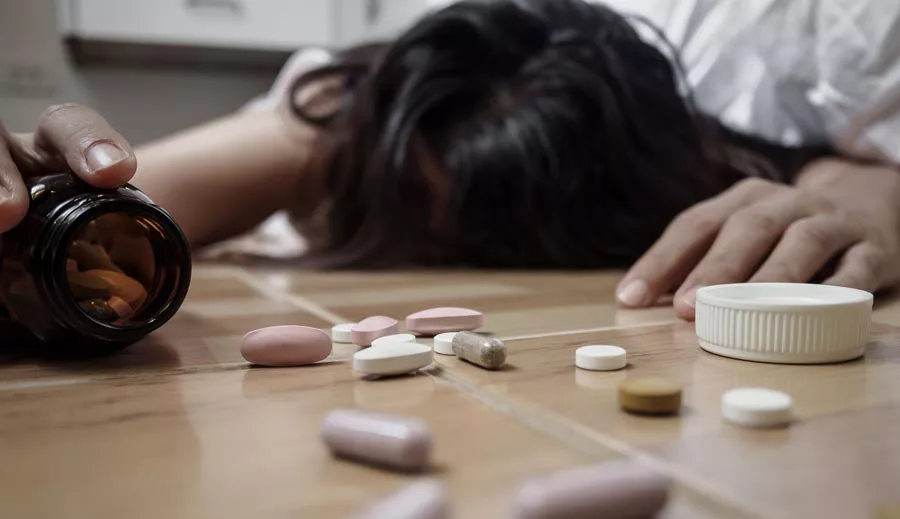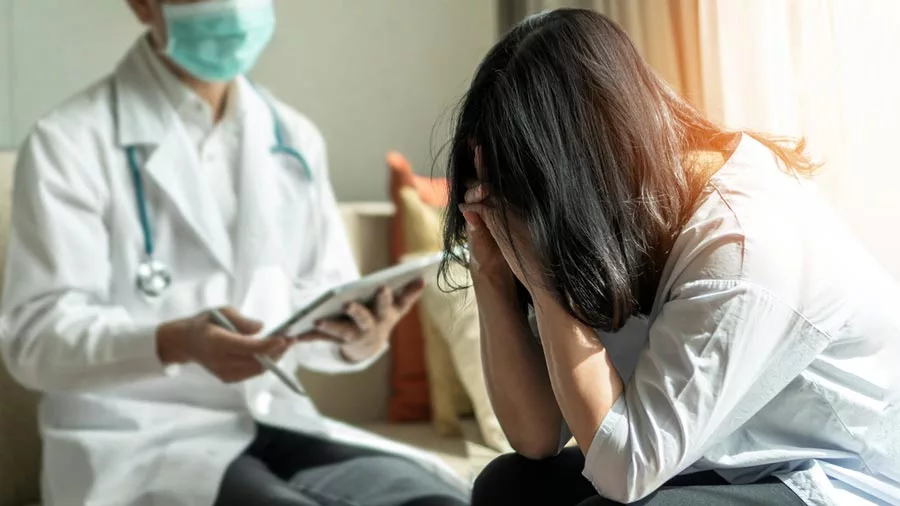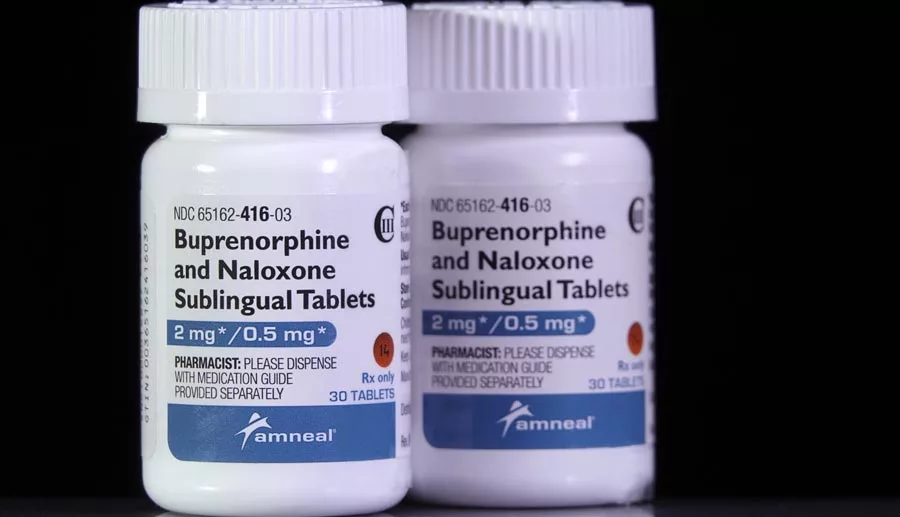Medication Assisted Treatment Orange County
Opioid Use Disorder and FDA Approved Medications
Substance abuse disorders, especially opioid use disorders, are an ever-increasing problem in our society today. To tackle this complex issue effectively, a multifaceted approach is necessary.
Medication Assisted Treatment (MAT) has been proven to be one of the most successful strategies to treat substance abuse disorders. A medication assisted treatment plan combines the use of medications with individualized counseling and behavioral therapies to help individuals break free from their destructive addictions and lead a healthier life.
Through these types of treatment, individuals are given the tools and support needed to manage their addiction and attain lasting recovery from substance abuse.
For some people, the idea of asking for help to contend with an opioid use disorder can be daunting and accompanied by stigma and fear. Nonetheless, it’s essential to recognize that seeking assistance is not a symbol of frailty. It’s a brave and positive action in order to take back their life and wellbeing.
If you or a loved one needs help with a substance use disorder, keep reading to learn more about addiction, medication assisted treatment Orange County services, and what South Shores Detox and Recovery can do to help you or a loved one find addiction recovery!
What Are Opioids and What is Opioid Abuse?

Opioids are a type of substance that attaches to opioid receptors in the body. Because a doctor generally prescribes opioids as a method of pain relief, there is an unfortunate misconception that they cannot be harmful. Medications like morphine, fentanyl, hydrocodone, and oxycodone can have dangerous consequences if misused.
Misusing opioids involves taking them in a manner that goes against instructions from a doctor, in greater doses, or more frequently than instructed. This carries with it the potential for opioid addiction and dependence, both mentally and physically.
Opioid dependence can have serious consequences on an individual’s health, including overdose and death. In addition, those who abuse opioids are also at risk of becoming addicted to other illicit substances and other medications.
If you or someone you know is struggling with opioid abuse or opioid dependency, it’s important to reach out for help. Effective treatments, such as a medication-assisted treatment program, are available and can help individuals overcome their opioid dependence and achieve long-term recovery.
24 Hour Opioid Withdrawal Helpline
Opioid Addiction and Withdrawal Symptoms
Individuals with opioid addiction may experience psychological cravings for the drugs, even when they are not in physical pain. This can lead to a higher chance of relapse, even after completing a treatment program.
The process of withdrawing from opioids can be difficult and uncomfortable, as the body has become physically dependent on the drugs. Common withdrawal symptoms include the following:
Sweating: Withdrawal from drugs or alcohol can lead to increased sweating, particularly at night. This can be accompanied by chills and hot flashes, as well as abdominal cramping, diarrhea, muscle aches, and pains.
Nausea and vomiting: Symptoms related to nausea and vomiting can be intense and may last for several days. Individuals may also experience abdominal cramping and diarrhea.
Insomnia: Individuals may have difficulty sleeping and may experience intense cravings for opioids.
Muscle aches and pains: Withdrawal from drugs or alcohol can bring on intense muscle aches and pains that may last for a few days. These physical symptoms may be accompanied by restlessness and agitation, further exacerbating the discomfort.
Anxiety and depression: Withdrawal from drugs or alcohol can be a difficult process, bringing on intense feelings of anxiety and depression. These emotions can cause hopelessness which may lead to relapse due to the lack of support or a sense of helplessness.
Irritability and agitation: Opioid withdrawal can cause agitation and irritability, leading to increased tensions with family and friends, as well as increasing the likelihood of relapse.
What is a Medication Assisted Treatment Program?

MAT programs provide a comprehensive approach to treating addiction to opioids and other substances. By blending medication, behavioral therapy, and additional support services, MAT programs aim to assist individuals in overcoming their opioid dependence and ultimately reaching long-term recovery.
Treating Opioid Addiction: Medically Assisted Treatment
Medication Assisted Treatment (MAT) programs make use of FDA-approved medicines such as methadone, buprenorphine, and naltrexone to help reduce craving for opioids and minimize withdrawal symptoms. In doing so, these treatments can enhance physical health and lead to an improved quality of life.
In addition to medication, medication-assisted treatment programs also include behavioral therapy and other support services, such as individual and group counseling, case management, and access to community resources. These services help individuals address the underlying psychological and social factors that contribute to their addiction, and provide them with the skills and support they need to maintain their recovery in the long term.
Medication Assisted Treatment (MAT) is not a one-stop solution for opioid addiction, but rather an extensive, long-term treatment approach. This comprehensive strategy brings together medication, behavioral therapy, and support services to aid individuals in overcoming their addiction and ultimately attaining greater health and fulfillment in life.
More Details About Medication Assisted Treatment

Medication-assisted treatment (MAT) is a comprehensive approach to treating opioid addiction that combines medication with behavioral therapy and other support services. Three common medications used in MAT are methadone, buprenorphine, and naltrexone.
Methadone
Methadone is a long-acting opioid-based medication that interacts with the same opioid receptors in the brain as other opioids while reducing cravings and warding off withdrawal symptoms. This type of treatment must be administered daily at clinics and can only be accessed via MAT programs.
Buprenorphine
Buprenorphine is a partial opioid agonist that binds to the same opioid receptors in the brain as other opioids, but with a lower risk of abuse and improved ability to prevent overdose. This medication can be prescribed by a doctor and taken in the comfort of one’s own home, making it more accessible for those in recovery.
Naltrexone
Naltrexone is an opioid antagonist designed to intercept the impacts of other opioids. To be most effective, it should be taken together with behavioral therapy and support services and is commonly prescribed by a doctor in pill form once a day.
Medication Assisted Treatment programs, when supported by other treatments and evidence-based therapies like Cognitive Behavioral Therapy, can be hugely beneficial for people trying to beat their addiction to opioids such as painkillers.
These programs give individuals the necessary resources and backing to accomplish long-term recovery from opioid addiction and other substance use disorders, significantly decreasing the possibility of a fatal overdose.
The Importance of a Whole Patient Approach for an Addiction Treatment Program
To ensure a successful recovery, a whole-patient approach must be taken into consideration for addiction treatment programs. This method acknowledges the complexity of addiction, recognizing that it not only impacts an individual’s substance use but also their physical, mental, and emotional health. This approach provides individuals with the support, resources, and care needed in order to achieve long-term sobriety.
24 Hour Addiction Treatment – Call Now!
Your Medication Assisted Treatment Program of Choice
South Shores Detox and Recovery is a leading provider of Medication Assisted Treatment for those dealing with addiction. They have a skilled and caring team of professionals that offer a secure and nurturing atmosphere to begin the recovery journey, enabling individuals to take the essential steps required for achieving sobriety.
At South Shores Detox and Recovery, we provide Medication Assisted Treatment, but also other addiction treatment programs such as individual and group counseling, family therapy, and 12-step programs. These extra services give you the assistance you need to move forward with your recovery process and journey toward sobriety.
Contact us today to learn more about our services and how we can support you on your journey to long-term addiction recovery.
All phone calls are confidential, so reach out in confidence today and get options for yourself or a loved one now!
related pages
- Benzodiazepine Detox
- Opiate And Opioid Detox
- Suboxone Detox
- Behavioral And CBT Therapy
- Dual Diagnosis Disorders
- Mental Health Treatment
- Depression And Mood Disorders
- Alcohol Detox
- Drug Detox Programs
- Addiction Treatment Program
- Mental Health Therapies
- Drug Rehab Orange County
- Drug Rehab Santa Ana
- Couples Rehab Orange County
- Alcohol Rehab Orange County
- Health Net Rehab Center
- Fentanyl Detox
- Dual Diagnosis Treatment Orange County Programs
- Drug Rehab that Accepts TRICARE
- TRICARE Alcohol Rehab
- Alcohol Rehab Santa Ana
- Crack Detox
- Alcohol Detox Orange County
- Heroin Detox
- Medication Assisted Treatment Orange County
- Orange County Drug Detox
